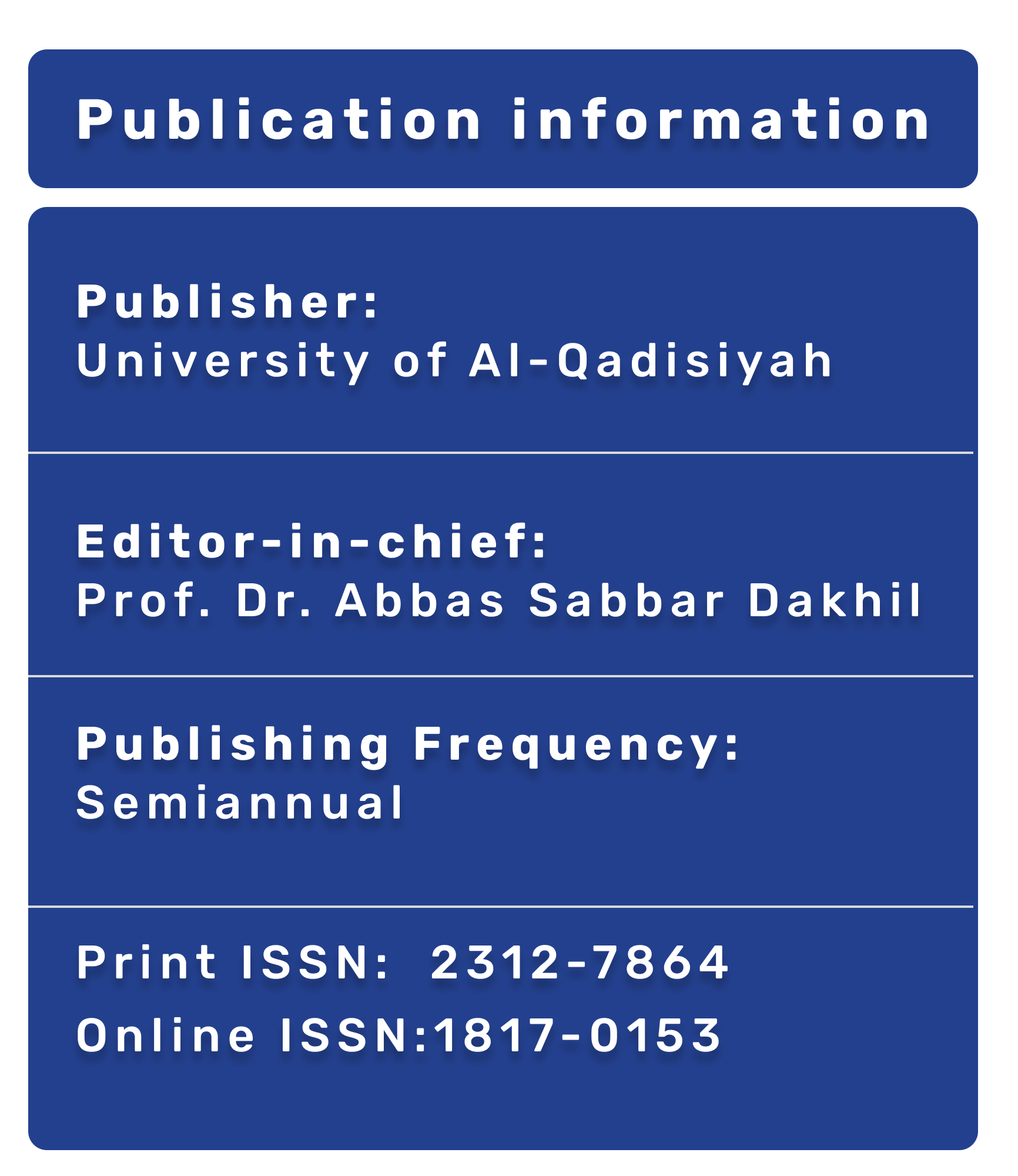Streptococcus angriness isolated from Patients with Acute Infection following Surgical Tooth Extraction
DOI:
https://doi.org/10.28922/qmj.2023.19.1.45-50Keywords:
Acute inflammation, Surgical tooth extraction, virulence factors, biofilm, Streptococcus anginosusAbstract
In this study, 250 individuals with acute infection following surgical tooth extraction were treated at a Hilla dental clinic and cultivated at 37°C for 18–24 hours. They cultured on several selective medium at 37°C for 18–24 hours. Identification of Streptococcus anginosus was based on colonial morphology, microscopically, and biochemical tests, and all scientific specimens were successful cultures. Of 250 specimens, only 25(10%) were biochemically identified as Strep. anginosus, while 225(90%) were associated with other microorganisms. Hemolysin-producing Strep. anginosus isolates have been studied. 10(66.66%) isolates produced hemolysin in blood agar that formed a clearance sector around the colonies and a streak on the plate after 24 hours of incubation at 37°C. Strep. anginosus isolates were also tested for siderophores production, 5(33.33%) Strep. anginosus isolates produce siderophores. All bacterial isolates provide protease to hydrolyze protein. After 24 hours of incubation, all Strep. anginosus isolates were able to hydrolyze protein using protease enzyme (100%) when tested using M9 (supported by 20% glucose and 1% csaien). Adding 3ml of 5% Trichloroacetic acid gave the colony a clean hallo. Quantitative biofilm development tests were performed in a microtiter using Trypticase Soy Broth with 1% glucose. To improve accuracy, this assay was done three times. All Strep. anginosus isolates were biofilm former (100%), 12/15(80%) were strong biofilm formers, and 3/15 (20%) were mild biofilm formers. However, the antibiotic disc diffusion test using six clinically important antibiotics showed that most Strep. anginosus isolates were extremely resistant to the antibiotics, especially the ?-lactams, including Amoxicillin 13(86.6%), Cefixime 12(80%), Ceftriaxone 12(80%), Meropenem, 11(73.33%) Cefotaxime 10(66.66%), and Imipenem 9(60%).








